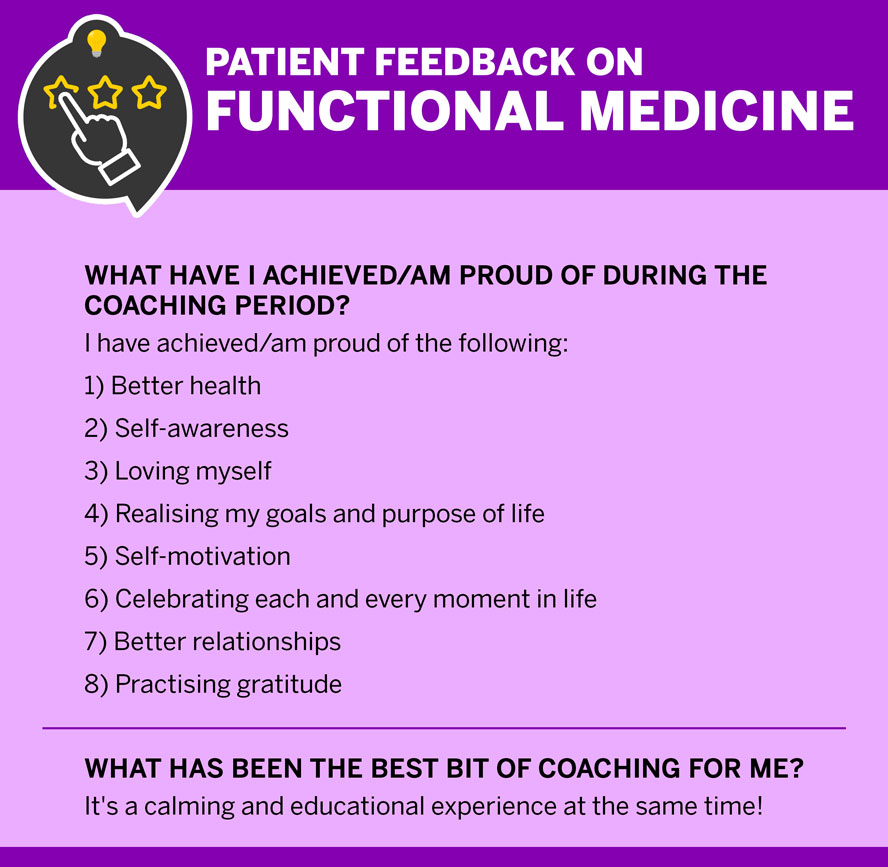| Millions of people across the world have lost their jobs due to the economic meltdown that the COVID-19 pandemic sired. However, the digital world brings hope for new opportunities. Business concepts based on digital platforms that once didn’t attract much clientele, today seem to flourish and thrive economically. Take, for instance, online learning platforms as a concept. How many institutes or learning platforms really profited out of such models?
But today, the scenario has taken a 360-degree turn. Every institute has resorted to e-learning, and every individual has come to terms with this new normal. Similarly, new concepts and business models are being born, although out of necessity, but have immense scope for the future. One such interesting concept is Functional Medicine. Although this concept has been existing for some time now in countries like the US and UK, it is fairly new to India and holds a key to new opportunities in coming times. Elyse Wagner, Founder and Chief Wellness Officer, Functional Medicine Coaching Academy sheds light on the concept and explains ways by which people can become a certified Functional Medicine coach in conversation with Raelene Kambli What is Functional Medicine, and what is its proof of concept? Functional Medicine asks how and why illness occurs and restores health by addressing the root causes of diseases for each individual. The Functional Medicine model is an individualised, patient-centred, science-based approach that empowers patients and practitioners to work together to address the underlying causes of diseases and promote optimal wellness. It relies on a detailed understanding of each patient’s genetic, biochemical, and lifestyle factors and leverages that data to direct personalised treatment plans that lead to improved patient outcomes. Providers are successfully applying the Functional Medicine model in many different settings: small, large, cash-based, insurance-based, institutional and private. However, no single, optimal model for practising Functional Medicine exists, and in reality, clinicians tend to practice a hybrid of two or more models. Functional Medicine coaching: Our coaches come to us from all over the globe with a range of different backgrounds. Many of them leave the programme and tend to either open up a private practice (virtual or in-person), work with a Functional Medicine practitioner or doctor on a collaborative care team and/or provide support or programming in the corporate wellness world. Roy Hall, MD – a Functional Medicine trained doctor, who sees patients for diabetes, arthritis, autoimmune and thyroid issues, hormones, and other conditions, has his network of FMCA-trained health coaches who remotely work for his platform and they have created an incredibly effective strategy for collaborating and communicating via his EMR. Adding a health coach has made a tremendous difference. People get well faster. I would never go back to not having a coach. It just does not makes sense to me. When I look back on our first year, I feel kind of sorry for our clients because they missed out. Does this concept involve a collaborative approach to help patients? Yes, by nature, coaches are trained to collaborate with clients and practitioners. They take a client-centred approach and help them get to where they want to be. What does a Functional Medicine coach do? What are the benefits of working with a functional health coach? Functional Medicine health coaches know there’s more to a healthy lifestyle than fad diets and unsustainable exercise regimens. There’s a gap between what clients know they need to do to be healthy and the intrinsic motivation they need to actually make and sustain those changes. Coaches bridge that gap. They use Functional Medicine principles and positive psychology coaching techniques to: * educate clients and help them understand their doctor’s plan of care. Great coaches are people who fully listen to their clients and offer support, accountability, collaboration, education and resources. While prior training in another healthcare discipline can be helpful, you don’t need a background in healthcare in order to become a Functional Medicine-certified health coach. Benefits of working with FM health coach: Your Functional Medicine Certified Health Coach (FMCHC) provides a unique combination of wellness expertise, nurturing support, goal setting and accountability to help you make and sustain real lifestyle changes, no matter how big, small or difficult those changes are. Why work with a coach? Some of the most common things people work on with the support of a Functional Medicine Health Coach are: * nutrition and weight loss. Anyone who wants to make lifestyle changes and live healthier can work with a health coach. Some clients also work simultaneously with a Functional Medicine doctor, while some seek out coaching on their own. Together, you and your coach will uncover your health goals and put a plan to reach them. As a trusted partner on your health journey, your FMCHC works within their scope of practice. That means they will not diagnose or prescribe, but they may work with you to help you seek out a doctor or other professionals, if needed. How is this concept different from a normal health coach? And what are the benefits of becoming a certified functional health coach? Functional Medicine health coaches take a bio-individualised strengths-based approach. They meet their clients where they are, and help them get to where they want to. It’s not the coach’s agenda or the expert approach – it is the coach approach and the client is in the front seat driving. Functional Medicine health coaches are taught to help their clients find their internal motivations and driving forces so they can build confidence and take ownership and responsibility for their health and happiness. How does one go about doing a certified course in Functional Medicine? What are the basic requirements to become a Functional Medicine coach? To become a FMCHC, you can go through our one-year all-online learning programme where we train health coaches in Functional Medicine foundations, functional nutrition and mind-body techniques. Everything is grounded in the art of coaching based on positive psychology. Unlike many programmes, you don’t have to have a healthcare background to become a FMCHC. The coaches who come to study with us have a deep passion and love for Functional Medicine/positive psychology and for helping/serving others on their health journey. You can join us on a webinar and/or download an information packet to learn more and/or connect with an admissions team member. How many centres do you have? How many health coaches have you worked with so far? We are an online school that trains health coaches in Functional Medicine and positive psychology. We have trained over 2,000 health coaches from all over the globe. In which countries do you see this concept flourishing better and why? This concept has been flourishing in the United States, UK and Canada at present. In the multi-billion dollar health and wellness industry, employment opportunities for health coaches are taking off. According to healthcoachcertifications.com, health education is expected to grow 14 per cent by 2024, faster than the average for all other careers. Where are these new coaching opportunities expected to grow? Locations include medical centres and physicians’ offices, corporations, day spas, wellness centres and schools. Many of our alumni establish their own coaching practices or partner with practitioners, or sometimes both. Your options will depend on your background, interests, and what’s in your local area or accessible to you online. Indian patients are yet at that nascent level to imbibe the culture of a functional health coach? What would be your suggestions for Indian patients/consumers? This came from our Mumbai-based FMCHC Anindita Guha Maulik. Maulik has found that as far as Functional Medicine is concerned, Indians are far more open and receptive than many others. This is because of their tradition of Ayurveda and its emphasis on addressing the root cause, etc. When she talks to people, she uses the terminology that most Indians are aware of in terms of Ayurveda and then ties it into Functional Medicine. Due to this, she has not really had to convince any of the principles of Functional Medicine or how it works. As far as health coaching is concerned, this is something quite new but coaching is not. I explain how it works in terms of positive psychology, behaviour change and transformation, character strengths, etc and its similarity to other forms of coaching that people can relate to, like sports, business coaching, etc. I find that if I use an analogy and focus on the benefits of coaching and the results one can have, most people in India are receptive to this concept. As far as urban India is concerned, I find that Indian consumers are ready to try Functional Medicine health coaching and they realise how it can help them with the chronic health issues of our modern life. Since FM health coaching stands out in terms of using a powerful combination of character strengths, positive psychology, motivational interviewing and mindfulness, they can really benefit from the same. The good thing is that these cut across language, community, belief systems, etc., as they are all fundamental to human nature. I am seeing the results in all my clients as a result of the coaching. What is important is that Indian consumers do understand that just knowing about something or having the information is not enough. They need guidance, support, accountability and help with implementing changes not only to get well, but to stay well. That is where an FM health coach shines! |
- Advertisement -




In our ancient system of medicine Ayurveda, this is called ” Prakruthi analysis” based on your prakruthi the lifestyle and diet has to be followed to be healthy.